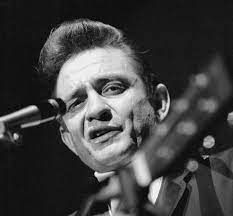Johnny Cash – White Girl.dx


Johnny Cash’s “White Girl” is not your typical love ballad. Released in 1964 on the album “Bitter Tears: Ballads of the American Indian,” the song takes a somber turn, exploring themes of racial tension and cultural displacement. It sheds light on a complex period in American history through the lens of folk music.
“Bitter Tears” itself was a groundbreaking concept album. Cash, a white man from Arkansas, used his platform to address the struggles and injustices faced by Native Americans. This was a bold move in the context of the early 1960s, when social and racial issues were coming to a head in the United States. The album wasn’t just about raising awareness; it aimed to challenge perceptions and ignite empathy.
“White Girl” fits seamlessly into this overarching message. The exact origin of the song remains unclear, but some speculate it draws inspiration from a folk ballad titled “Pale Rider.” Regardless of its source, Cash delivers a powerful performance. His signature deep baritone voice narrates a tragic story, weaving a poignant tapestry of love, loss, and the harsh realities of cultural conflict.
While the details are sparse within the song itself, it tells the tale of a forbidden romance between a Native American man and a white woman. Their love is met with disapproval and hostility, highlighting the racial prejudices of the time. The song doesn’t offer a happy ending, leaving the listener with a sense of sorrow and a stark reminder of the human cost of social division.
“White Girl” wasn’t a commercial success on the scale of Cash’s other hits. However, its significance lies in its contribution to the larger conversation about race relations in America. It was a courageous artistic statement that used folk music’s power of storytelling to bring attention to a marginalized population’s plight.
The song’s impact is further amplified by its placement on “Bitter Tears.” By surrounding “White Girl” with other narratives of struggle and resilience, Cash created a powerful and cohesive artistic statement. He used his musical platform to advocate for social change, making “White Girl” a significant touchstone within his expansive catalogue.











